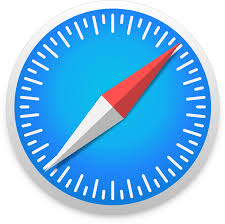TL;DR – HTML5 local storage is an alternative to cookies, allowing web applications to store user information in their browser.
Contents
HTML5 Local Storage vs. Cookies
The local storage is a type of HTML5 offline storage that allows user string data to be saved synchronously in their browser. Information is kept in name and value pairs and not available between different browsers on the same device.
If you want to quickly find out if the browser you're currently using supports HTML5 local storage, press F12 and enter this into your browser console:
if(typeof(Storage) !== "undefined") {
console.log("Local storage is supported.");
// Local storage is available on your browser
} else {
console.log("Local storage is not supported.");
// The condition isn't met, meaning local storage isn't supported
}Local storage can be used as an alternative to cookies. It provides a chance to store more data: 4KB is the limit for cookies, and local storage allows using up to 10MB, depending on the browser. Moreover, the process is more efficient – the browser does not send any local storage data to the server in any step.
Local Storage Objects
HTML5 local storage keeps the data in two JavaScript objects. Both of them are accessed in the same way and available globally:
| Object | Available to | Lifetime |
|---|---|---|
| localStorage | All windows or tabs using the same domain | Permanent |
| sessionStorage | A particular window or tab and its popups | Till the end of the session |
localStorage
The JavaScript localStorage object stores data which doesn't expire. It will be available even if you end the session by closing your browser and stay till you delete it manually.
In the code example below, you can see a name and value pair "name", "John" formed in localStorage. Then, the value is retrieved and displayed in an HTML element with an ID of res
// Stores the item data
localStorage.setItem("name", "John");
// Retrieves the data
document.getElementById("res").innerHTML = localStorage.getItem("name");Here's another way to accomplish the same task:
// Stores the item data
localStorage.name = "John";
// Retrieves the data
document.getElementById("res").innerHTML = localStorage.name;In this next example, we will be removing the name from the localStorage object:
The localStorage can also be used to count how many times an element has been clicked throughout multiple sessions in the same browser. See how we use the clicks variable in the code snippet below:
if (sessionStorage.clicks) {
localStorage.clicks = Number(localStorage.clicks) + 1;
} else {
localStorage.clicks = 1;
}
document.getElementById("result").innerHTML = sessionStorage.clicks + " click(s).";
- Easy to use with a learn-by-doing approach
- Offers quality content
- Gamified in-browser coding experience
- The price matches the quality
- Suitable for learners ranging from beginner to advanced
- Free certificates of completion
- Focused on data science skills
- Flexible learning timetable

- Simplistic design (no unnecessary information)
- High-quality courses (even the free ones)
- Variety of features
- Nanodegree programs
- Suitable for enterprises
- Paid Certificates of completion

- Easy to navigate
- No technical issues
- Seems to care about its users
- Huge variety of courses
- 30-day refund policy
- Free certificates of completion
sessionStorage
To store data of a currently ongoing session, you can use the sessionStorage object. This data will be removed once the session ends, i.e., the user closes the window or logs out.
Let's see how the sessionStorage object can be used to count how many times an element has been clicked during a single session:
if (sessionStorage.clicks) {
sessionStorage.clicks = Number(sessionStorage.clicks) + 1;
} else {
sessionStorage.clicks = 1;
}
document.getElementById("result").innerHTML = sessionStorage.clicks + " click(s) during this session.";HTML5 Local Storage: Useful Tips
- Just like cookies, HTML5 offline storage shouldn't be used to store sensitive information (e.g., user IDs or payment information). It can be easily accessed by any JS script and compromised in case of a cross-scripting attack.
- When downloading huge files, you may encounter an error called Out of HTML5 Offline Storage Space. If this happens, delete the cookies and the session data using the Settings in your browser, restart your device and try again.
- Web workers cannot use the data kept in local storage in HTML.
Browser support

Chrome

Edge

Firefox

IE

Opera

Safari
Mobile browser support

Chrome

Firefox

Opera

 HTML
HTML  CSS
CSS  PHP
PHP  JavaScript
JavaScript  SQL
SQL  Bootstrap
Bootstrap  Solidity
Solidity  jQuery
jQuery  Git
Git  Chrome DevTools
Chrome DevTools  C++
C++  Python
Python 


